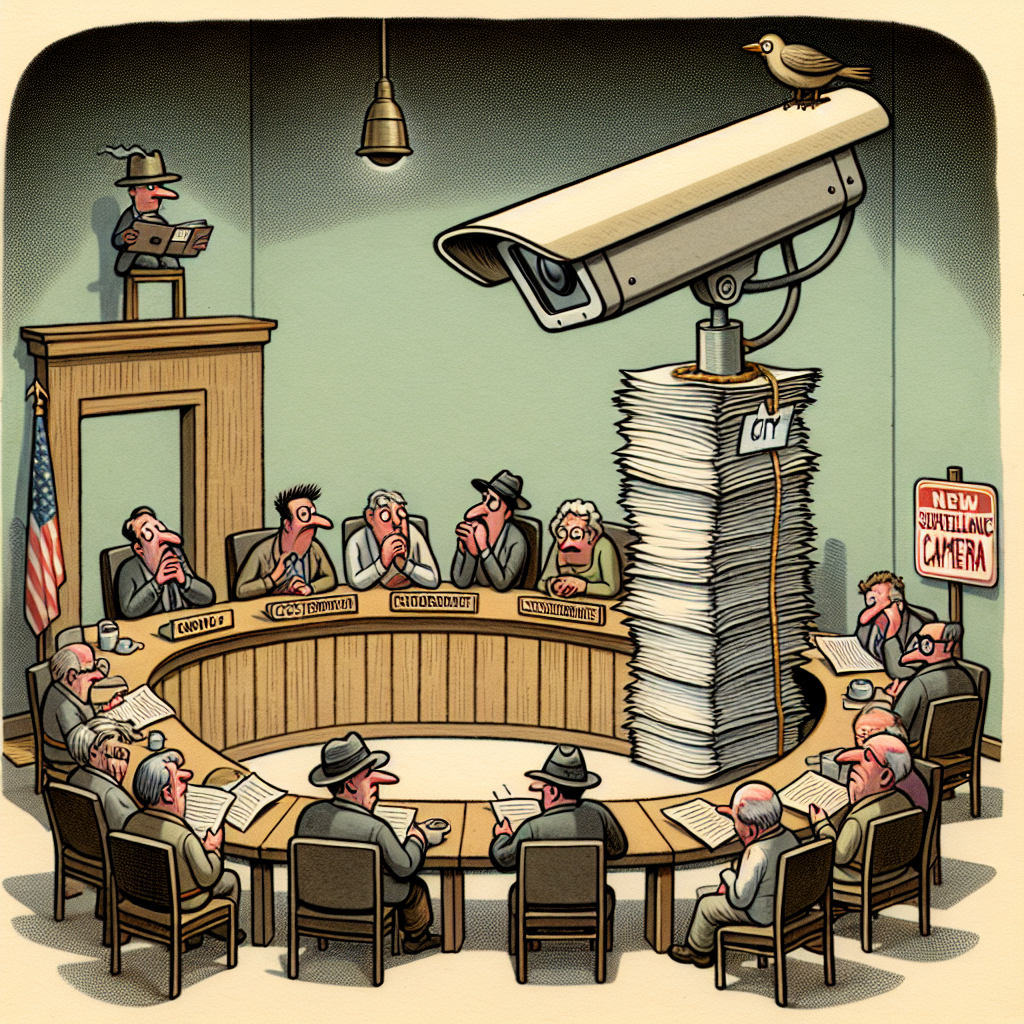“Behind the Lens: Uncovering Chesterburgh’s Hidden Surveillance Data Deal”

"Section 4.3: The municipality shall maintain exclusive rights to all data collected through surveillance equipment, retaining access for a period no less than seven years following installation."
Chesterburgh’s recent approval of a $225,000 surveillance camera network on Main Street and adjacent public spaces came with little public fanfare, yet behind the terse city council minutes lies a far more complex record of municipal data management and contract stipulations. Over the last three months, I have obtained and reviewed all related procurement documents, vendor contracts, and internal communications under the Freedom of Information Act (FOIA). The resulting picture is one of evolving surveillance infrastructure converging with digital data governance—a topic as quietly consequential as it is inadequately understood in small towns like Chesterburgh.
The initial proposal, submitted in December 2023 by the city’s Department of Public Safety, justified new cameras primarily on the grounds of crime prevention and traffic safety. However, the documents reveal that the chosen vendor, SecureSight Systems, secured not only the installation and ongoing maintenance contract but also exclusive control over the video data storage infrastructure for seven years post-installation. This includes access to raw camera feeds and processed metadata, according to the service agreement annexed to the official contract (see scanned contract pages, labeled "SecureSightVendorContract_001-010.pdf").
Section 4.3 of the contract—which is not broadly publicized—stipulates that all surveillance data collected by the cameras will be held on SecureSight’s proprietary cloud servers. Moreover, the city is obligated to pay an annual data management fee of $18,000 to maintain access rights. The contract further grants SecureSight full discretion to anonymize, aggregate, or retain identifiable records “for the purposes of service improvement and lawful municipal operations,” a phrase that remains notably undefined within the text.
Perhaps most concerning is attachment D of the agreement, a seemingly standard data privacy addendum, which nonetheless empowers SecureSight to share anonymized data sets with third-party entities, including “research institutions and law enforcement partners,” without prior public notification. There is no stipulation for public transparency or independent audits of such data sharing practices. This raises questions about oversight mechanisms and accountability in what is effectively outsourced municipal surveillance.
The Chesterburgh City Council’s minutes from the January 12, 2024, session provide only a brief recorded discussion. Councilmember Hazel Torres asked about data storage security but was reassured by the city's CFO that all contract terms complied with state privacy statutes. The minutes do not document any debate or public input concerning the vendor’s post-installation data control or third-party data sharing clauses.
It was in an internal email chain obtained from the city clerk’s office that greater nuance emerged. An April 2 memo from the city’s Legal Department to the Public Safety Department highlighted potential vulnerabilities under new cybersecurity regulations, suggesting that the existing contract terms leave the city exposed to data breaches. The memo recommended renegotiation or an addendum to enhance encryption standards and require SecureSight to submit annual security compliance reports—recommendations that, as of this writing, remain unaddressed in council meetings or public disclosures.
Local advocacy group Chesterburgh Citizens for Privacy (CCP) raised alarms after reviewing the FOIA-released contracts. In a public statement issued on March 5, CCP urged the City Council to impose stricter data governance conditions, specifically recommending that all surveillance data remain under direct municipal control and that independent audits be
